Mazda CX-60 vs Toyota RAV4 - Differences and prices compared
Compare performance (327 HP vs 306 HP), boot space and price (43700 £ vs 35100 £ ) at a glance. Find out which car is the better choice for you – Mazda CX-60 or Toyota RAV4?
Costs and Efficiency:
When it comes to price and running costs, the biggest differences usually appear. This is often where you see which car fits your budget better in the long run.
Toyota RAV4 has a evident advantage in terms of price – it starts at 35100 £ , while the Mazda CX-60 costs 43700 £ . That’s a price difference of around 8537 £.
Fuel consumption also shows a difference: Toyota RAV4 manages with 1 L and is therefore clearly more efficient than the Mazda CX-60 with 3.80 L. The difference is about 2.80 L per 100 km.
As for electric range, the Toyota RAV4 performs somewhat better – achieving up to 75 km, about 12 km more than the Mazda CX-60.
Engine and Performance:
Power, torque and acceleration are the classic benchmarks for car enthusiasts – and here, some clear differences start to show.
When it comes to engine power, the Mazda CX-60 has a minimal edge – offering 327 HP compared to 306 HP. That’s roughly 21 HP more horsepower.
In acceleration from 0 to 100 km/h, the Mazda CX-60 is minimal quicker – completing the sprint in 5.80 s, while the Toyota RAV4 takes 6 s. That’s about 0.20 s faster.
Space and Everyday Use:
Cabin size, boot volume and payload all play a role in everyday practicality. Here, comfort and flexibility make the difference.
Both vehicles offer seating for 5 people.
In curb weight, Toyota RAV4 is hardly perceptible lighter – 1745 kg compared to 1890 kg. The difference is around 145 kg.
In terms of boot space, the Toyota RAV4 offers barely noticeable more room – 580 L compared to 570 L. That’s a difference of about 10 L.
When it comes to payload, Mazda CX-60 hardly perceptible takes the win – 612 kg compared to 600 kg. That’s a difference of about 12 kg.
Who comes out on top?
Overall, the Toyota RAV4 shows itself to be dominates this comparison and secures the title of DriveDuel Champion.
It convinces with the more balanced overall package and proves to be the more versatile choice for everyday use.
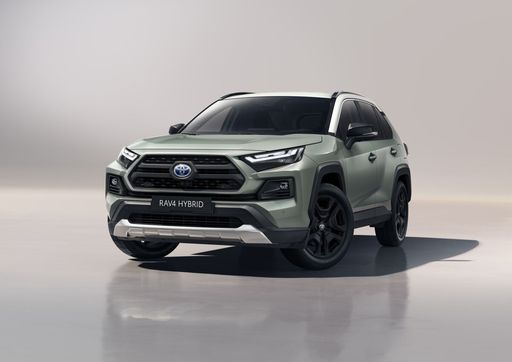
Toyota RAV4
Costs and Consumption
View detailed analysis
Engine and Performance
View detailed analysis
Dimensions and Body
View detailed analysis
Mazda CX-60
The Mazda CX-60 pairs sculpted, understated looks with poised handling and a cabin that punches above its class, making long drives feel unexpectedly civilized. For buyers who want a premium feel without the showroom swagger, it's the sort of car that earns respect quietly — and still manages a wink when you push on.
details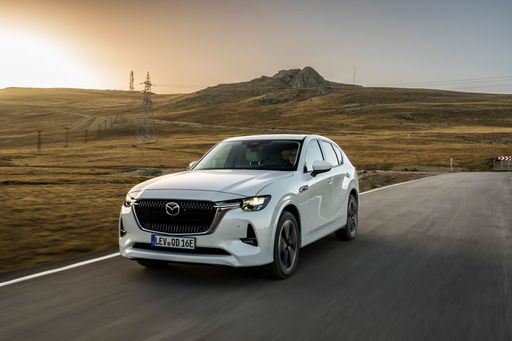
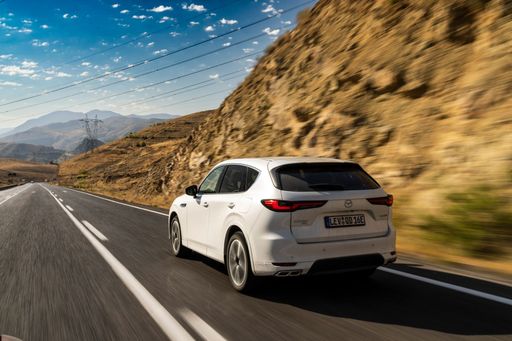
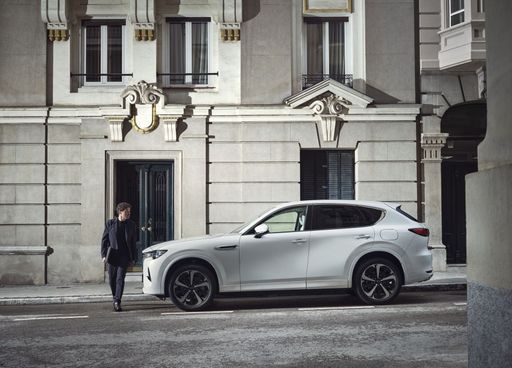
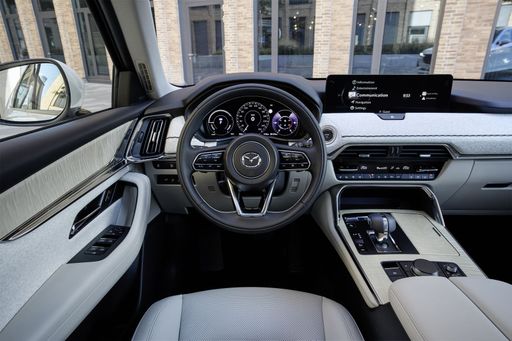
Toyota RAV4
The Toyota RAV4 feels like a sensible friend on the road, marrying dependable practicality with a dash of SUV personality that keeps daily driving from turning dull. Comfortable and easy to live with, it looks tough without shouting and quietly gets the job done — a sensible pick for buyers who want versatility without drama.
details
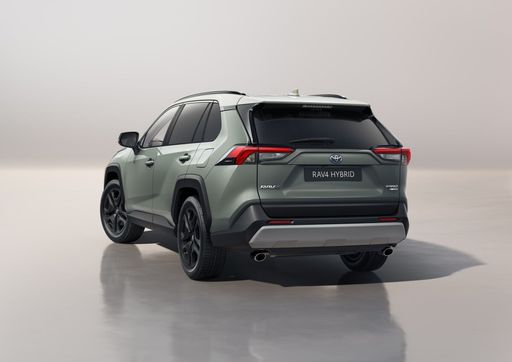
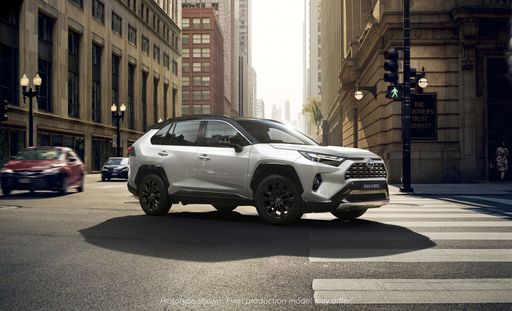
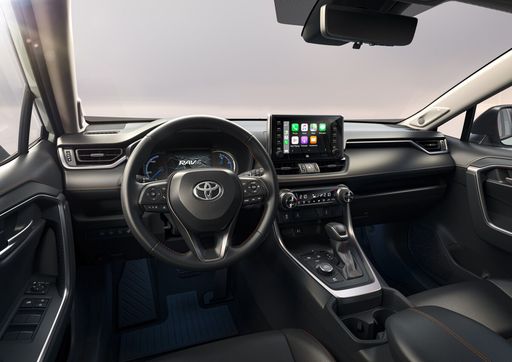
Costs and Consumption |
|
|---|---|
|
Price
43700 - 57900 £
|
Price
35100 - 55700 £
|
|
Consumption L/100km
3.8 - 5.2 L
|
Consumption L/100km
1 - 5.6 L
|
|
Consumption kWh/100km
-
|
Consumption kWh/100km
-
|
|
Electric Range
63 km
|
Electric Range
75 km
|
|
Battery Capacity
-
|
Battery Capacity
-
|
|
co2
85 - 137 g/km
|
co2
22 - 128 g/km
|
|
Fuel tank capacity
-
|
Fuel tank capacity
55 L
|
Dimensions and Body |
|
|---|---|
|
Body Type
SUV
|
Body Type
SUV
|
|
Seats
5
|
Seats
5
|
|
Doors
-
|
Doors
5
|
|
Curb weight
1890 - 2055 kg
|
Curb weight
1745 - 1910 kg
|
|
Trunk capacity
570 L
|
Trunk capacity
520 - 580 L
|
|
Length
-
|
Length
4600 mm
|
|
Width
1890 mm
|
Width
1855 mm
|
|
Height
-
|
Height
1685 mm
|
|
Max trunk capacity
-
|
Max trunk capacity
1604 - 1690 L
|
|
Payload
581 - 612 kg
|
Payload
390 - 600 kg
|
Engine and Performance |
|
|---|---|
|
Engine Type
Plugin Hybrid, Diesel MHEV
|
Engine Type
Full Hybrid, Plugin Hybrid
|
|
Transmission
Automatic
|
Transmission
Automatic
|
|
Transmission Detail
Automatic Gearbox
|
Transmission Detail
CVT
|
|
Drive Type
All-Wheel Drive, Rear-Wheel Drive
|
Drive Type
Front-Wheel Drive, All-Wheel Drive
|
|
Power HP
200 - 327 HP
|
Power HP
218 - 306 HP
|
|
Acceleration 0-100km/h
5.8 - 8.4 s
|
Acceleration 0-100km/h
6 - 8.4 s
|
|
Max Speed
-
|
Max Speed
180 km/h
|
|
Torque
450 - 550 Nm
|
Torque
-
|
|
Number of Cylinders
4 - 6
|
Number of Cylinders
4
|
|
Power kW
147 - 241 kW
|
Power kW
160 - 225 kW
|
|
Engine capacity
2488 - 3283 cm3
|
Engine capacity
2487 cm3
|
General |
|
|---|---|
|
Model Year
2025
|
Model Year
2024 - 2025
|
|
CO2 Efficiency Class
B, D, E
|
CO2 Efficiency Class
D, B
|
|
Brand
Mazda
|
Brand
Toyota
|
What drive types are available for the Mazda CX-60?
The Mazda CX-60 is offered with All-Wheel Drive or Rear-Wheel Drive.




